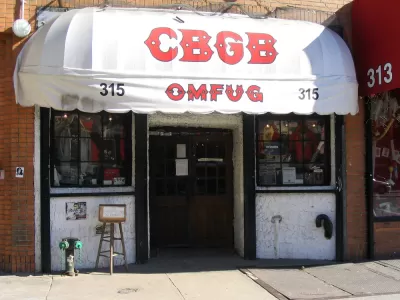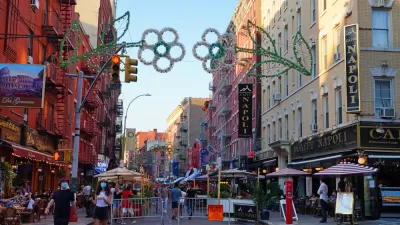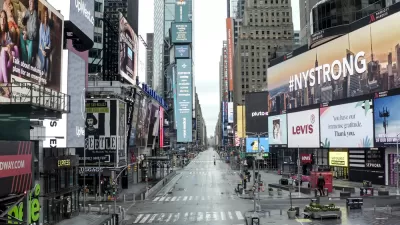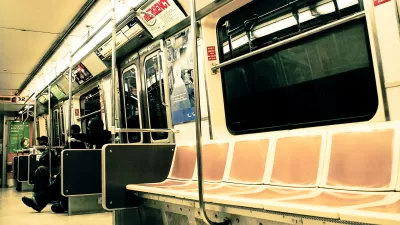Introducing the “CBGB theory of city planning.”

The work from home and hybrid work trends of the Covid-19 pandemic have persisted beyond the desires of the higher ups at Amazon, leaving Seattle’s political leaders searching for ways to bring people back downtown and replace the lost foot traffic and spending of the day-time workforce.
Seattle Mayor Bruce Harrell, for example, recently rolled out an updated “Downtown Activation Plan”—which notably lacked any mention of bringing downtown workforces back to the office in full.
Writing for PubliCola, Josh Feit has another suggestion: “Weirdos, Not Bros.”
“The first step to reviving downtown isn’t new housing, it starts with embracing the grim commercial real estate market, where vacancies recently increased from 22 percent to 24 percent,” writes Feit.
How does embracing vacancies help revitalize downtown? Like this: As commercial vacancies rise—new demand for Seattle office space fell 30% from January 2022 —rents drop. And as rents drop, the weirdos, rather than the big employers, move in. And by weirdos, I mean: creative-class, art-centric, small-scale retail. In short: The rebirth of downtown will be sparked not by Amazon, but by high vacancy rates, leading to low rents, leading to an influx of vibrant, small businesses, leading to new housing demand.
Feit calls this approach the “CBGB theory of city planning,” a reference to the famed, now extinct, nightclub on the Lower East Side of Manhattan that attracted waves of music scenes over the decades, but especially in the late 1970s, “[turning] the neighborhood into the epicenter of an urban shock wave that would change cities into magnetic destinations for brains, youth, talent, and commerce.”
More details on why Feit believes that the real estate market is already making space for Seattle’s CBGB moment can be read in the source article linked below.
FULL STORY: The CBGB Theory: Weirdos Not Bros Will Revive Downtown

Study: Maui’s Plan to Convert Vacation Rentals to Long-Term Housing Could Cause Nearly $1 Billion Economic Loss
The plan would reduce visitor accommodation by 25,% resulting in 1,900 jobs lost.

North Texas Transit Leaders Tout Benefits of TOD for Growing Region
At a summit focused on transit-oriented development, policymakers discussed how North Texas’ expanded light rail system can serve as a tool for economic growth.

Using Old Oil and Gas Wells for Green Energy Storage
Penn State researchers have found that repurposing abandoned oil and gas wells for geothermal-assisted compressed-air energy storage can boost efficiency, reduce environmental risks, and support clean energy and job transitions.

Private Donations Propel Early Restoration of Palisades Playground
Los Angeles has secured over $1.3 million in private funding to restore the Pacific Palisades playground months ahead of schedule, creating a modern, accessible space that supports community healing after recent wildfires.

From Blight to Benefit: Early Results From California’s Equitable Cleanup Program
The Equitable Community Revitalization Grant (ECRG) program is reshaping brownfield redevelopment by prioritizing projects in low-income and environmental justice communities, emphasizing equity, transparency, and community benefits.

Planting Relief: Tackling Las Vegas Heat One Tree at a Time
Nevada Plants, a Las Vegas-based nonprofit, is combating the city’s extreme urban heat by giving away trees to residents in underserved neighborhoods, promoting shade, sustainability, and community health.
Urban Design for Planners 1: Software Tools
This six-course series explores essential urban design concepts using open source software and equips planners with the tools they need to participate fully in the urban design process.
Planning for Universal Design
Learn the tools for implementing Universal Design in planning regulations.
Ascent Environmental
Borough of Carlisle
Institute for Housing and Urban Development Studies (IHS)
City of Grandview
Harvard GSD Executive Education
Toledo-Lucas County Plan Commissions
Salt Lake City
NYU Wagner Graduate School of Public Service





























